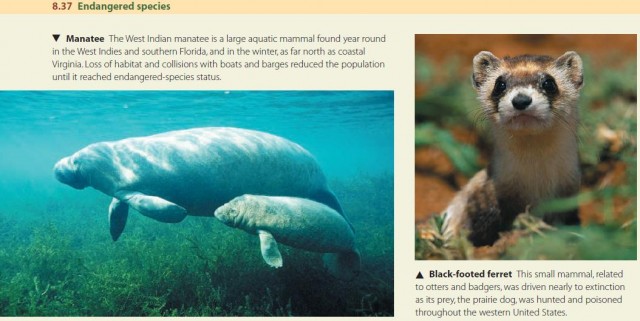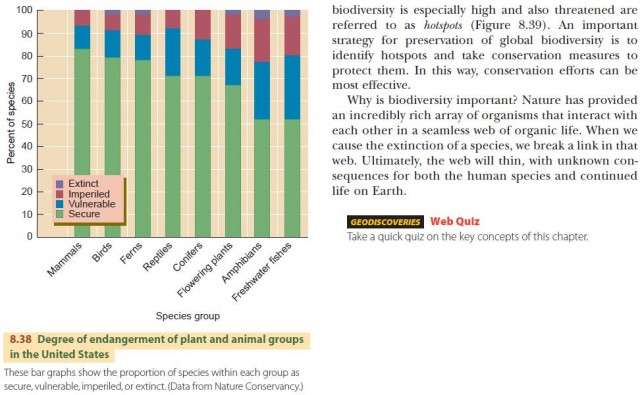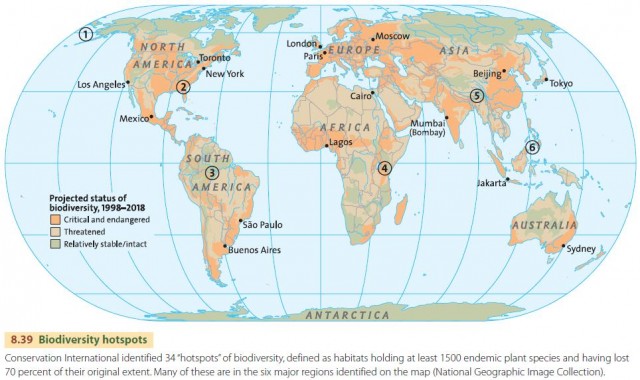Biodiversity
Today, global biodiversity—the variety of biological life on Earth—is rapidly decreasing. Two out of every five species on the planet that have been assessed by scientists face extinction, according to the International Union for Conservation of Nature and Natural Resources (Figure 8.37).
Our species, Homo sapiens, has ushered in a wave of extinctions unlike any that has been seen for millions of years. In the last 40 years, several hundred land animal species have disappeared. Aquatic species have also been severely affected, with 40 species or subspecies of freshwater fish lost in North America alone in the last few decades. In the plant kingdom, botanists estimate that over 600 species have become extinct in the past four centuries. These documented extinctions may be only the tip of the iceberg.

Many species haven't been discovered yet and so may become extinct without ever being described. Figure 8.38 shows the conservation status of some important groups of plants and animals of the United States. Many species are extinct or imperiled.
How has human activity created extinctions? Over our history, we've dispersed new organisms to regions where they outcompete or prey on existing organisms. Many islands were subjected to waves of invading species, ranging from rats to weeds, brought first by prehistoric humans and later by explorers and conquerors.

Hunting by prehistoric humans alone was sufficient to exterminate many species. As humans learned to use fire, large areas became subject to periodic burning. And human alteration and fragmentation of habitats have isolated plant and animal populations, causing populations to shrink and sometimes become extinct. Biodiversity is not uniform over the Earth's surface.
In general, tropical and equatorial regions have more species and more variation in species composition between different habitats. Geographic areas in which biodiversity is especially high and also threatened are referred to as hotspots (Figure 8.39). An important strategy for preservation of global biodiversity is to identify hotspots and take conservation measures to protect them. In this way, conservation efforts can be most effective.

Why is biodiversity important? Nature has provided an incredibly rich array of organisms that interact with each other in a seamless web of organic life. When we cause the extinction of a species, we break a link in that web. Ultimately, the web will thin, with unknown consequences for both the human species and continued life on Earth.